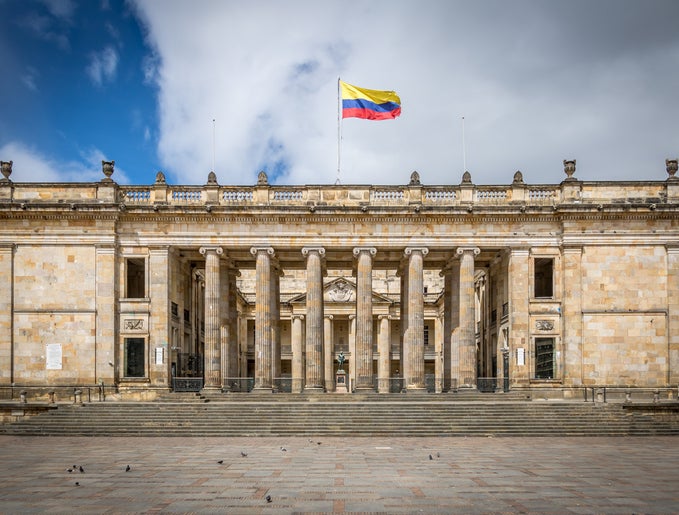

Cyprus, a modest Mediterranean island situated on the cusp of the East Mediterranean Sea, holds substantial offshore acreage in the Levant Basin, estimated by the US Geological Survey to contain 1.7 billion barrels of oil and 122 trillion cubic feet (Tcf) of natural gas.
The island, along with Israel, which also has a share of the Levant Basin, is canvassing EU approval and part-funding for a pipeline between Cyprus and Europe through Greece and Italy. The pipeline would bring an estimated 10 billion cubic metres (bcm) of gas from Cyprus and Israel annually to Europe. Its development could significantly boost Cyprus’s economy which has been flagging after being one of the worst hit by the 2008 financial crisis.
The Levant Basin, which contains areas belonging to Turkey, Syria, Cyprus, Palestine, Israel and Egypt, is well known for age-old geopolitical tensions that have so far marred development.
But with the Israel-Cyprus pipeline in the offing and Cyprus’s government determined to exploit its hydrocarbon resources after a second licensing round, analysts are watching the region closely to see if diplomacy can win over political wrangling.
See Also:
An opportunity for a flagging economy
Speaking of the pipeline and its potential for Cyprus’s economic development Dr Rafael Leal-Arcas, reader in law at Queen Mary University of London, says the country will be ‘very happy’ if the pipeline goes ahead. "Macro-economically Cyprus is doing very badly. If suddenly they get an injection of billions of Euros that would be fantastic," he added.
How well do you really know your competitors?
Access the most comprehensive Company Profiles on the market, powered by GlobalData. Save hours of research. Gain competitive edge.

Thank you!
Your download email will arrive shortly
Not ready to buy yet? Download a free sample
We are confident about the unique quality of our Company Profiles. However, we want you to make the most beneficial decision for your business, so we offer a free sample that you can download by submitting the below form
By GlobalDataA paper published by the EU commission states that the project could be under construction by 2017 and pumping gas by 2020. However, as the pipeline has yet to be approved this seems unlikely.
Academics from the Robert Gordon University (RGU) are in favour of offshore fracking in Scottish waters.
US-based Noble Energy, which currently dominates exploration offshore Cyprus, would stand to benefit significantly from such a pipeline. The company found gas at the Aphrodite gas field in 2011; field is estimated to have 5 Tcf of recoverable natural gas resources. Noble has also found evidence of oil and is planning further exploration.
Infield Systems Limited, published content analyst, Catarina Podevyn, says: "Noble’s strong presence offshore Cyprus is expected to continue throughout the forthcoming period with Infield Systems forecasting the operator to hold a 40% share of Cyprus’s offshore investment during the 2015-2019 timeframe."
Other firms investing offshore Cyprus are French Total and Eni of Italy. Both of which have been awarded concessions offshore Cyprus and are planning exploration drilling.
Managing director of Total exploration and production Cyprus Jean-Luc Porcheron is reported as saying "this is just the beginning of exploration in Cyprus", but warned the company wouldn’t be able to start drilling before mid-2015.
It has been reported there are also plans for a $10 billion LNG facility to be built on the island to manage the natural gas discovered. According to reports the facility would be funded by Cyprus in-conjunction with Israel, which would also use the facility. However, Israel has yet to commit fully to the project. In fact, to make such a facility financially viable more partners, such as other East Mediterranean countries, may need to contribute.
Cyprus-EU pipeline: the most viable scenario?
An EU commissioner is reported as saying the proposed Cyprus-Europe pipeline, which would be the longest in the world at 1,530km, could contribute to the security of the East Mediterranean region, as well as the diversification of the EU’s energy supply. Most notably it would relieve the EU’s dependence on gas from Russia. However, Leal-Arcas calls into question the economics of the pipeline.
"The question is cost / benefit analysis, is it worth billions of Euros to get gas from the Eastern Mediterranean basin?" he says. "Is there enough? I doubt this. It helps, but it is not enough and I am not sure it justifies the cost.
"I think they don’t realise subsea there are a lot of difficulties and the countries are very, very far from each other."
Leal-Arcas says what would make more sense is a gas pipeline from Cyprus to Turkey because the countries are very close together, and then from Turkey to the rest of the EU.
"Is this possible politically? That is another question," he adds.
Tensions have been rife between Turkey and Cyprus since 1974 when Turkey invaded Cyprus after a coup by Cypriots who wanted to join Greece. Cyprus has been ethically divided ever since.
Lecturer at the University of Nicosia, Constantinos Adamides speaking about a Cyprus Turkey pipeline told Open Democracy: "I see it being very difficult for any Greek Cypriot politician to accept some pipelines to Turkey, prior to a settlement to the conflict, even if that means losing billions of Euros."
Turkish Cypriots have also expressed their concern over who would benefit from any future revenues from offshore oil and gas.
Home to two of the biggest gas discoveries in the last decade, Israel needs to find a cost efficient and manageable gas export solution fast.
Cyprus’s president Nicos Anastasiades has assured: "The benefits out of the exploitation of the wealth of energy is going to the interest of all the people of Cyprus whether they are Greek or Turkish Cypriots."
Adding that he is aware "protracted problems" between Turkey and Cyprus, such as Cyprus accusing Turkey of violating its maritime exclusive economic zones, have the potential to hamper further development of its hydrocarbon reserves.
He also warned that hydrocarbon riches would be for future generations and people shouldn’t have expectations of Cyprus becoming like the Arab Gulf Emirates.
Geopolitical juggling
Cyprus-Turkey communications aren’t the only strained relationships in the Levant Basin. The Palestinian Authority (PA) cautioned the EU against signing any contract for the pipeline until territorial gas disputes with neighbouring countries are resolved. The PA is referring to a long-standing maritime boundary dispute between Israel and Lebanon which covers an area of almost 850km2 around the delimitation of the tripoint area between Lebanon, Cyprus and Israel.
Cyprus has already signed agreements with Egypt, Israel and Lebanon in an attempt to clear the way for peaceful exploration of its hydrocarbons, but the Lebanese parliament, which doesn’t recognise Israel as a country, has so far failed to ratify the agreement.
It’s noted that development of the Israel-Cyprus pipeline would be a massive boost for Israel, which currently has no country locally willing to accept its energy exports.
Despite Cyprus colluding with its arch enemy, Lebanon’s government is keen to remain on friendly terms with the country, perhaps hoping it might one-day also use the Island as a route to Europe. Lebanese foreign minister, Gebran Bassil, said in November: "We have dreams to share together for a prosperous future between Lebanon and Cyprus."
In regards to Egypt-Cyprus relations, Infield Systems expect Egypt to import a large proportion of the Aphrodite field when it comes on-stream.
A time for change in the Levant Basin?
Despite the political fragility, analysts’ predictions for offshore Cyprus remain positive.
Infield Systems Limited is predicting capital expenditure offshore Cyprus to significantly increase to over $3bn in the next five years, compared to the previous five year period between 2010 and 2014, which saw Capex spend at just over $100m. Most of this will be spent on the Aphrodite field’s FLNG facility.
The analysts also anticipate substantial spend to be required by a EuroAsia Interconnector development which is expected to comprise 36% of Cyprus’s offshore spend during the 2015-2019 timeframe.
Meanwhile Cyprus’s government will wait for an EU response to the Cyprus-Europe pipeline. The pipeline would open up a huge market for Cyprus, and indeed for the whole region. Its potential development further highlights that reaching full potential will rely on co-operation with its neighbours. And the same goes for them.


.gif)


